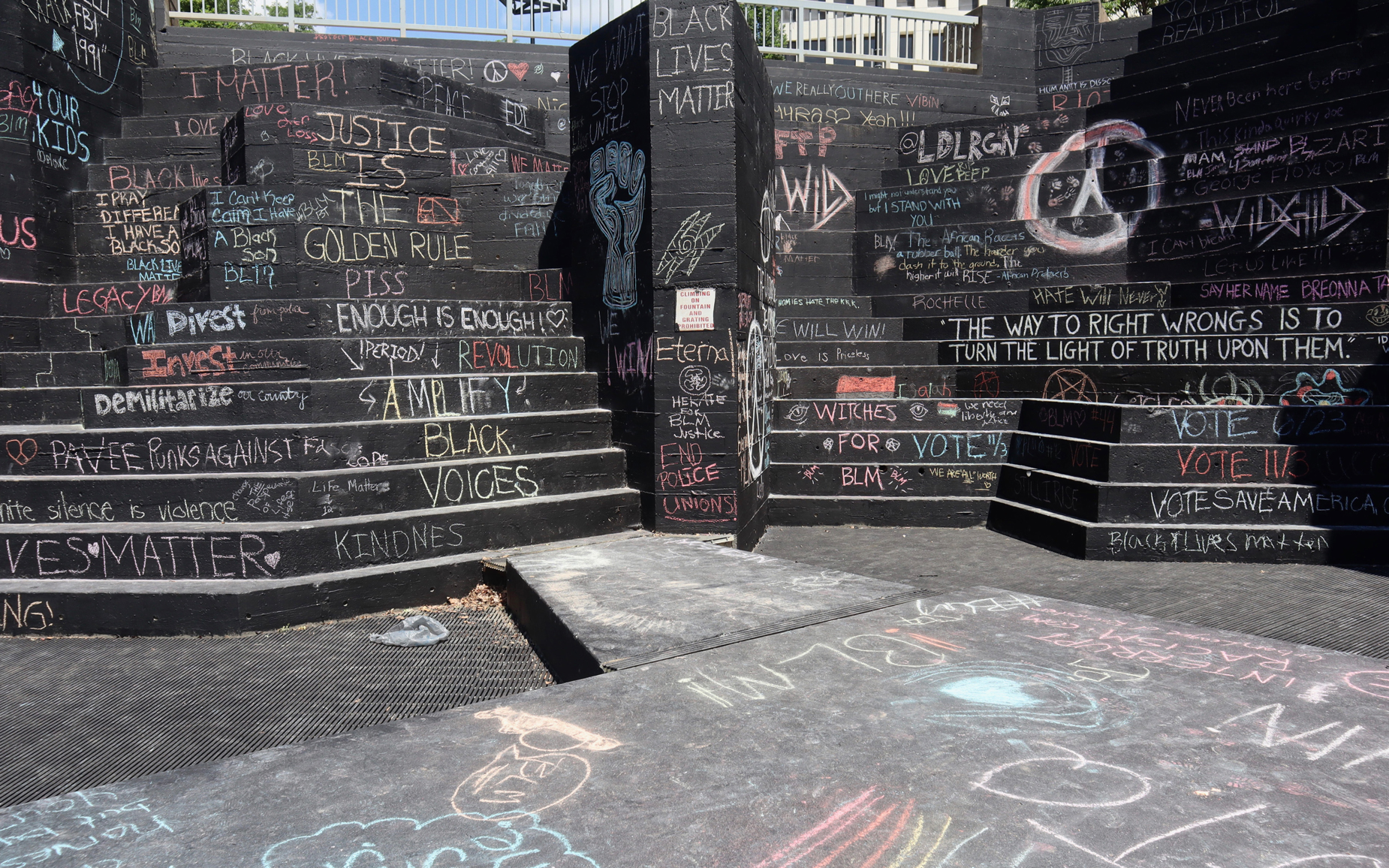Archival-Futurism: Archives as Social Justice
By Miranda Mims Featured image: Inscriptions at MLK Park community installation “The Empire Strikes Black,” created by public artist Shawn Dunwoody. Photo by Quajay Donnell. There should be a space for alternative realities, alternative ways of knowing, in the archive. There should be room for imagining a world in which justice not injustice triumphed. —Hazel V. Carby, “The National Archives”1 As an archivist, reading Hazel Carby’s “The National Archives” is a reminder to me of the precedent on which archives were built, and the continual work we in the profession have towards transforming archival practices to reflect a social justice framework. Archives are spaces of truth and understanding as much as they are about secrecy and erasure. That which has been documented and preserved within a repository is so often duplicitous. Although archival practices have evolved, becoming more inclusive, the history of privileging the elite or powerful is still deeply entrenched in societal forms of racial and economic inequity and cultural hegemony. Archives are typically a reflection of the society in which they exist. Careful …

